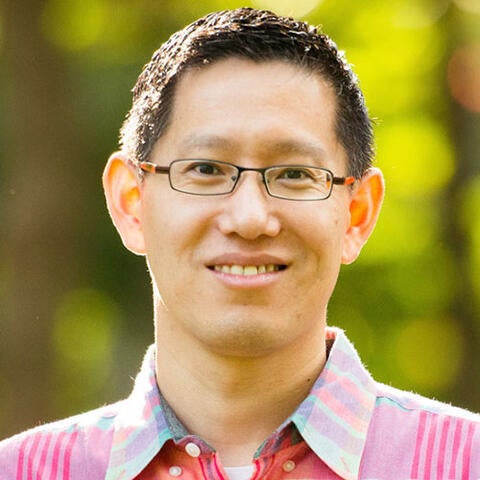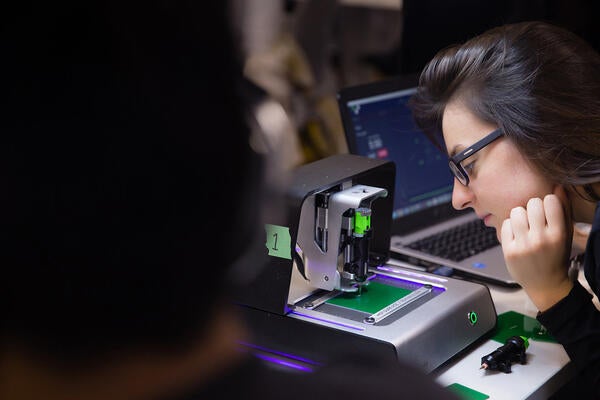
How machine learning helps Siri and Alexa understand you
Waterloo computer scientists are developing technology to improve speech recognition and allow machines to give you better answers to your questions

Waterloo computer scientists are developing technology to improve speech recognition and allow machines to give you better answers to your questions
By Rose Simone University Communications
Jimmy Lin
Professor, Faculty of Mathematics
> David R. Cheriton School of Computer Science
The computer on the starship Enterprise in Star Trek: The Next Generation is able to generate holograms so human-like, the characters on the show sometimes fall in love with them.
We are not quite yet at that point with our computer interactions, but we are getting there, thanks to machine learning that enables personal assistants like Siri or Alexa on smartphones or tablets.
Jimmy Lin, a professor at the University of Waterloo’s David R. Cheriton School of Computer Science, is helping to improve the machine learning used for natural language processing. “We are developing technology to improve speech recognition and the question-answering capabilities of such systems,” Lin says.
Ten years ago, Siri or Alexa would have been the stuff of science fiction. But today, natural language processing that is enabled by machine learning, part of what is known as “artificial intelligence,” makes it possible.
Automated algorithms sift through massive amounts of data, “or big data” and learn to spot patterns in language, understand what a query is about, and immediately generate a response.
It’s not perfect, of course. You might ask a personal assistant like Siri to “play me some jazz,” and she might respond, “that’s not nice!” In machine learning, more data, or more examples, help the machine “learn” to spot the patterns: “You can think of machine learning as the tool, and big data would be the resources that go into it,” Lin says.
Machine learning uses a lot of computer resources, which is why questions to Siri or Alexa are sent to a server in a remote data centre, where the query is processed, the answer is generated, and returned back to the user’s smartphone. As big data grows, it will become more critical to make machine learning faster and more efficient. That’s what Lin’s research group works on.
But also, Lin and his students are looking for ways to better enable digital devices that are not connected to remote servers “in the cloud” to also have some built-in language understanding capabilities. This can be especially important in situations where privacy is a big issue and people may not want their requests being tracked by companies, Lin adds.
“I have a pretty large research group of about 15 postdocs and graduate students, and they are all tackling different slices of the problem,” Lin says.
Feature image photo credit: JIRAROJ PRADITCHAROENKUL/iStock/ThinkStock

Read more
Waterloo researcher develops cognitive assistive technology for people with Alzheimer’s disease

Read more
Voltera: Award-winning Waterloo startup is shipping its printer to more than 60 countries around the world

Read more
New robotics lab is asking big questions that will shape our future
The University of Waterloo acknowledges that much of our work takes place on the traditional territory of the Neutral, Anishinaabeg and Haudenosaunee peoples. Our main campus is situated on the Haldimand Tract, the land granted to the Six Nations that includes six miles on each side of the Grand River. Our active work toward reconciliation takes place across our campuses through research, learning, teaching, and community building, and is co-ordinated within the Office of Indigenous Relations.